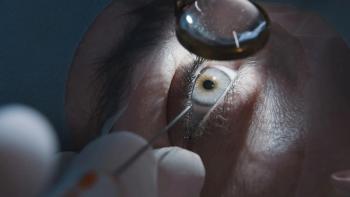
- Optometry Times October 2019
- Volume 11
- Issue 10
Why taking patient history never ends
I don’t like to read. I never did, and, still today, I’m more of a “wait until the movie comes out” kind of guy. I’m very fortunate in that our kids take after their mother in this regard (among others).
I am a moderate myope, and I’m pretty sure that my contact lenses are a little stronger than they should be. This would account for my low degree of accommodative esophoria which becomes more manifest later in the day.
You are thinking, “Cycloplege yourself and find out your true degree of myopia!”
No. I’m not doing that, and you can’t make me. I’m not bothered by my vision. I just plain don’t like to read.
With this in mind, I saw a new patient the other day who reminded me why the patient history “never ends.” A seven-year-old presented with his mother and three siblings as new patients. The other three siblings checked out fine. The seven-year-old had no overt complaints. I asked him and his mother if there were problems with the board at school or with reading or concerns from the teacher. No one had any bad news to offer.
Previously by Dr. Casella:
Then his mother added, “Well, he doesn’t like reading, anyway.” I asked the child why not, and he said he just didn’t like reading.
You can tell where this is headed. As it turned out, the child was a mild latent hyperope of around 1.50 D OU. Best corrected visual acuity was 20/20 OU, and I wasn’t able to elicit frank phoria. Ocular health was unremarkable, and I released him with a prescription for as-needed wear at near.
I asked the child’s mother to call me about a week after the glasses were dispensed, and she reported that she had noticed no changes in behavior but that he seemed to enjoy wearing them. That is one of those non-verbal cues that I pay attention to because it means I likely did something right.
I hope I have helped create a bookworm out of this child-or that he at least doesn’t continue an aversion to reading. Had his mother not casually mentioned that little factoid about reading, I may well have accepted the report of no concerns at near and moved on. Looking back, however, I see the reality implied within that response: How can there be concerns with reading if one doesn’t read to begin with?
How do you pry for such lurking variables within a patient’s (especially a younger patient’s) visual well-being? I’m eager to know; drop me a line. In the meantime, I’ll be waiting for the movie to come out.
Articles in this issue
about 6 years ago
Lyme disease: The 45-year silent epidemicabout 6 years ago
Epi-on cross-linking may speed visual recoveryabout 6 years ago
30 years of LASIKabout 6 years ago
More than a yellow lesion?about 6 years ago
Go beyond medical treatment for recurrent corneal erosionabout 6 years ago
Toxoplasmosis shows varied diagnosisabout 6 years ago
Nutrition in the future of primary-care optometryabout 6 years ago
Artificial intelligence might be the future of practice managementabout 6 years ago
Dry eye signs may signal risk for diabetic foot ulcersover 6 years ago
Q&A: Academia, contact lenses, beer, climbing a water towerNewsletter
Want more insights like this? Subscribe to Optometry Times and get clinical pearls and practice tips delivered straight to your inbox.





